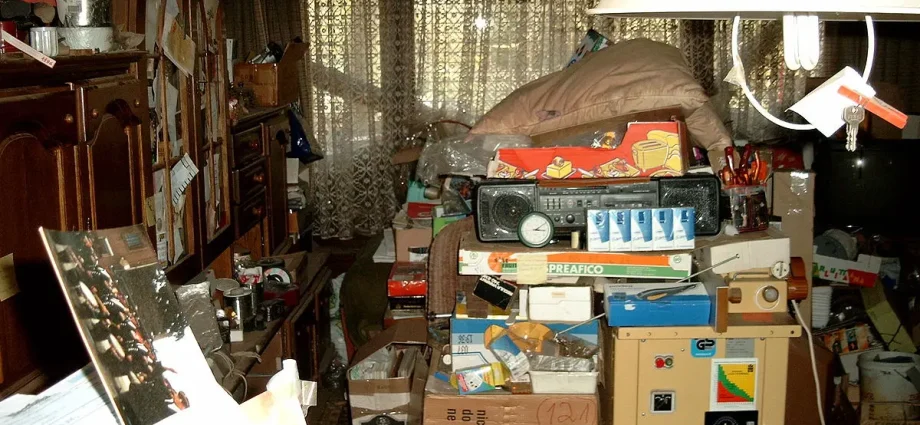Stacks of old clothes that might come in handy at the dacha, collections of worn-out appliances — why do we let things take control not only of our space, but also of life? Psychologist Marina Myaus tells what to do if you or a loved one cannot part with anything that is materially connected with the past.
The need to accumulate old things can be dictated by various motives.
- Security. A person does not believe that he will be able to secure a decent lifestyle for himself, and tries to save what he has. Older people in pathological hoarding often manifest loneliness and uncertainty that they can rely on the help of loved ones.
- Disappointment in people. It is easier to interact with things than with people: they will not let you down, will not offend, will not show aggression. There is more trust in them than in others.
- Nostalgia. This can manifest itself in mourning for a loved one with whom you parted. Things are connected with the past, into which it is impossible to return.
- Character features. “Often the trigger is extreme poverty that a person once experienced. This is not always the root cause, says Marina Myaus. — A large number of people who have also experienced deprivation in life have managed to avoid this passion. For its development, there must be a certain psychological constitution: greed, isolation, coldness. These personality traits push you to keep things around you.
- Depression. In this state, people become attached to everything familiar. There is no desire and energy to step forward. Old things symbolically keep from new bright impressions.
- Age changes. The desire to accumulate is often observed in older people, it can be triggered by developing diseases: atherosclerosis, dementia, Alzheimer’s.
Do you feel like it’s getting harder for you to part with things? “Try to analyze what is behind the fear of saying goodbye to the unnecessary,” the psychologist suggests. Are you unsure about the future? Do things give the illusion of warmth and support? Understanding that we receive only an ersatz of what we need will help to rebuild our attitude to the objective world.
What to do if such behavior is observed in loved ones? “An attempt to get rid of things that absorb space, especially when it comes to elderly relatives, has little chance of success,” the psychologist believes. The person will resist. At the same time, one should not hush up the problem and talk with a loved one, showing interest in his life, a desire to communicate. By doing this, you give him a sense of greater security, an understanding that you can rely on. Then the painful need to accumulate things can subside.”










